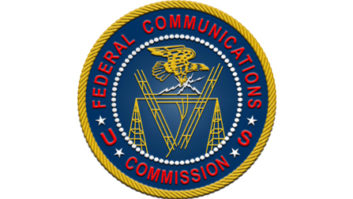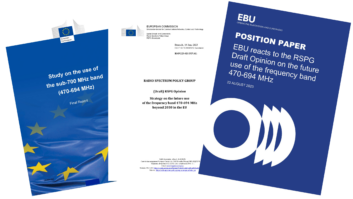E.U. Expansion Marks Integration of Media Experiences
GENEVA Ten nations, 74 million people and more than 800 radio stations joined the European Union in May.
Radio observers in the new member states believe that E.U. membership will benefit broadcasters and listeners, but slowly.
“It is a strong, net positive,” said Paul Fiddick, president of Emmis International, which owns stations in Hungary and Belgium. Looking at the macro-economic picture, Fiddick said he sees a benefit for broadcasters in lowering barriers and equalizing economies.
According to Michal Zelenka of the Czech Republic private broadcasters association, E.U. expansion has little influence on broadcasters there.
“The only problem we have is with Czech bureaucracy trying to put on more regulation than (the E.U.) asks for,” he said. “It is a process we can work out, but it takes a lot of time and power.”
For governments and regulators, joining the European Union means adjusting to its directives. The process began a decade ago, but harmonizing national regulations with E.U. regulations could still take years.
Nine of the new member states experienced upheaval during the past 15 years. Estonia, Latvia and Lithuania were part of the Soviet Union, gaining independence in the early 1990s.
The Czech and Slovak republics were one country, Czechoslovakia, until 1993. Poland and Hungary fell within the Soviet orbit too. Slovenia gained independence from Yugoslavia in 1991. Cyprus is still divided between Turkish and Greek cultures.
Only Malta has been free of social and political strife in recent years.
E.U. expansion also marks the integration of different cultures, more than 20 languages and vastly different media experiences.
The European Union was formed by a treaty that took effect in 1993. The six founding countries are France, Germany, Italy, Netherlands, Belgium and Luxembourg. Joining later were Denmark, Greece, Ireland, Portugal, Spain, the United Kingdom, Austria, Sweden and Finland.
Skeptical public
Commercial media arrived in the new member states more recently than in most of Europe, benefiting from foreign investment. State broadcasters making a transition to public service broadcasting had to win over a skeptical public.
(European broadcast terminology sometimes differs from that used in the United States. See sidebar.)
With a population of 38 million, Poland is the largest of the new member states and the fifth largest in the expanded European Union. It has 232 radio stations, most broadcasting for local communities; public broadcaster Polskie Radio offers four national and 17 regional channels.
The Czech Republic is home to 10 million people and 150 radio stations. Public broadcaster Ceský Rozhlas offers several regional channels and four national stations.
The Slovak Republic has 5.5 million inhabitants with a sizeable Hungarian minority. Of the 93 stations and channels, pubcaster Slovenský Rozhlas offers five national channels.
Hungary’s 10 million people listen to three public and two commercial national channels, and 70 local stations. Foreign companies own both national commercial stations; Rádió Danubius is part of Advent International and Sláger Rádió is part of Emmis International.
Hungary also has the largest Roma minority in the European Union, with about 100,000 living in Budapest. Rádió C was established to serve their community.
Slovenia, with a population of 1.9 million, is better off financially than other new E.U. countries. Per capita gross domestic product is roughly $19,500 or twice that of the next highest country.
Slovenia’s public broadcaster produces three national and five regional radio channels. In addition, there are 44 commercial, 20 non-commercial and two student stations.
A key provision of E.U. accession is respect for minority cultures and languages in education and media.
About a quarter of the 1.3 million Estonians are native Russian speakers. There are 35 radio stations, five public and 30 private. Public broadcaster Eesti Raadio provides one dedicated Russian-language channel and there are four private Russian-language stations.
Latvia also has a large minority population and Latvian media struggles with how to recognize the sizable Russian-speaking population. While Latvian law restricts broadcasts of non-Latvian language to 33 percent, of the 2.3 million Latvians, about 40 percent speak other languages, mostly Russian.
Public broadcaster Latvijas Radio offers five channels including one multilingual station, Radio 4 Doma Laukums. There are 31 commercial stations.
Large Baltic members
The largest of the three new Baltic members is Lithuania, with a population of 3.5 million. The public broadcaster offers three channels. There are six national commercial networks and 34 local/regional stations. Several stations target the significant Russian and Polish minorities.
Cyprus has 48 private and four public channels on the Greek side of the Green Line. Stations in the Turkish Republic of Northern Cyprus, which is not entering the European Union, generally re-broadcast popular stations from Turkey.
Malta is the smallest of the new members. There are 13 national and 25 community stations. Five national channels are commercial, three are public, three are assigned to political parties, one is assigned to the Catholic Church and one to a university.
In the newly shaped European Union, bigger advertising and consumer markets are far more tantalizing than the new layers of directives.
“I do not think that there is any real change for the radio broadcasters. There is optimism, but nothing concrete as yet,” said Mark West of Metromedia International, which owns stations in Hungary, Estonia, Latvia and the Czech Republic.
Andras Fischer, manager of Rádió Danubius in Hungary, said he thinks E.U. expansion will have an effect for the media business in Hungary in the mid term.
Ad growth predicted
“Advertising is hot-wired to retail sales,” said Fiddick of Emmis International. “Building a middle class in the (additional) E.U. countries is defined by purchasing power.”
“I think that this period is more stabilizing,” said Zsolt Somlói of advertising agency MindShare Hungary, “because, 10 years ago, multinational companies bought into the market and invested in marketing – now, positive profit and loss is key.”
The Polish radio advertising market has suffered along with much of Europe in recent years. Advertisers attracted by lower television prices pushed 2003 radio advertising revenues down 1.6 percent during 2002, while the overall market grew nearly 5 percent.
E.U. accession and overall improvement in the Polish economy should benefit all advertising, according to a CR Media Consulting report published in March. As competition increases, new products will enter the market and established companies will defend their market share.
The report forecasts a 10-percent growth in advertising spending for 2004, although radio might not see much benefit until 2006.
Hotly debated in the European Parliament for a decade, media ownership continues to ignite passionate discussion but few concrete rules.
Member countries have the right to regulate media ownership through national legislation. However, the European Parliament retains the right to review national legislation to preserve the free flow of commerce.
Critics often cite ownership concentration as a barrier to democratic reforms and call for greater E.U. regulation. In the just-added E.U. countries, ownership rules generally allow more concentrated media ownership than in existing members. Foreign ownership is also less restricted.
“I do not think that, just because of the accession, new investors will buy or buy out media from their recent owners,” said Fischer. “Ninety-nine percent of Hungarian media is owned by a company with headquarters a thousand miles away.”
Poland’s new media bill, passed in October 2003, effectively ended ownership limits on E.U. companies and raised to 49 percent the ownership-stake limit for non-E.U. companies.
Several foreign companies operate media in the Czech Republic. According to a report from Eurostat, the E.U. statistics office, the Czech Republic leads all accession countries in foreign investment.
French-owned Lagardère Active Radio International operates Frekvence 1 and Evropa 2. Irish Radio Investments owns the Kiss radio network. Germany-based Eurocast Rundfunk owns Rádio Impuls, the international arm of Clear Channel Communications owns Rádio Bonton and Metromedia International owns Country Radio and Rádio 1.
Stumbling block
Trade barriers to new technologies are also set to fall. Countries new to the E.U. will benefit from the union’s structural funding, allowing faster growth in many technology sectors, industry analysts believe.
In March, technology research analyst Gartner predicted near-term technology growth three times faster than western Europe, mostly in basic software products. The Gartner report also said that Estonia and Slovenia are already on a par with, if not ahead of, western Europe.
As in most states, Lithuania began changing regulations to conform with E.U. directives in the 1990s. One stumbling block for digital technologies has been the reluctance of telecom regulators to give up dominion over such technologies to media regulators.
In the case of Lithuania, the telecom regulator is responsible for digital transmissions while the media regulator oversees analog broadcasting.
In Hungary, the first DAB experiments began in 1995. Today, several programs from a public broadcaster are aired in digital.
While digital radio broadcasting in the accession countries seems likely to lag behind European DAB, one technology is moving forward. In the Czech Republic, GfK Prague began measuring audiences with Radiocontrol, a watch-sized personal listening habits meter, in April.
E.U. directives set several standards for public service broadcasting. Two of the most challenging for regulators and broadcasters are independence and public funding.
New members are expected to rein in public spending, though accession formalities did not define a payment for public broadcasting or endorse a funding mechanism.
Speaking to the Oxford Media Conference in January, Philip Lowe, the European commission director general for competition, made clear that E.U. regulation has shifted away from protecting broadly defined public interest and from public utility management toward opening up markets, ensuring free and fair competition and promoting the interests of consumers.









